前回のブログから半月ほどあっという間に時間が経過してしまいました。
正直に告白すると、以前ほど医薬翻訳への熱情が冷め、
本当に仕事にする気なのか?と自問自答気味です。
というのも、ネット上でも第一線でバリバリ仕事をしている実務翻訳者のブログを散見すると、
ほぼ全員の方が運動不足と座位のままの仕事姿勢から腰痛に悩んでいるという事実があります。
そこまでして自分が翻訳の仕事をしたいだろうか??と問うと、
私はやはりまだそこまで自分の気持ちが熟していないと答えるしかない。
何度も通信添削コースで翻訳学校の学びもしたけど、
しっかりした「何か」は得られずじまいでしたねぇ。
でも、一つだけ興味の赴くままに続けられそうなことがあります。
それは日進月歩で進むBiology分野。
世界に先駆けてips細胞の臨床が進む日本ではこれからもどんどん新しい取り組みが始まるでしょう。
以前から書いているジョージタウン大学「生命倫理学入門」は、以下の目標を掲げています;
The Kennedy Institute of Ethics at Georgetown University helped to invent the field of bioethics, beginning a tradition of creative leadership in practical ethics that continues into the twenty-first century.
この無料コースで倫理学部長でもある女性教授(同年齢かな?)は非常に示唆に富んだ助言をします。彼女の名前は、Maggie Little, BPhil, PhD
Director, Senior Research Scholar。
以下は彼女のプロファイルを同大学から引用。
Dr. Little is Director of the Kennedy Institute of Ethics, and Associate Professor of Philosophy at Georgetown.
Her research interests include issues in reproduction, clinical research ethics, and the structure of moral theory.
A Rhodes Scholar and fellow of the Hastings Center, she has twice served as Visiting Scholar in residence at the National Institutes of Health Department of Bioethics, and was appointed to the Ethics Committee of the American College of Obstetrics and Gynecology.
She is a founding member of The Ob-Gyn Risk Research Group, which brings together experts from medical epidemiology, obstetrics and gynecology, philosophy, bioethics, gender theory, and the medical humanities, for research encompassing a wide variety of issues in reproductive health and clinical research ethics.
Together with Ruth Faden and Anne Lyerly, she co-founded The Second Wave Initiative, which works to promote responsible research into the health needs of pregnant women.
As director, Dr. Little has overseen a time of transformative development at the KIE, including the launch of the world's first Introduction to Bioethics MOOC in April 2014; the inauguration of Conversations in Bioethics, an annual campus-wide event focused on a critical issue in bioethics; the deployment of a series of experimental undergraduate courses utilizing project-based learning and design studio methods; and the founding of EthicsLab, a social innovation lab at Georgetown whose team-based unites people on the front lines of complex moral issues with expert bioethicists and strategic designers make tangible progress on real-world bioethics problems.
昨年4月から彼女の強い希望で無料の生命倫理学講座が設けられたのが分ります。
というのも、私が無知だっただけなのだけど、5月16日付朝日新聞の「インタビュー」遺伝上の父を探して/加藤英明氏、を読んだ後になるほど!納得しました。
生物学的両親、生みの親と思いこんでいたら、なんと卵子だけは血がつながり、
精子だけ見ず知らずの他人から受精卵を作って自分が産まれていたということでした。
こんなことが40年以上も前から日本でも合法化されていたとは。
加藤さんは現在医師ですが、生物学的父親を探しているそうです。
これと付随するのが、講座でLittle教授が紹介してくれた二つのドキュメンタリー、
Google Baby, Generation Cyro(どちらもYoutubeで簡単に見れます)。
以前からCNNなどの海外メディアの情報で
生殖技術の向上がより貧しい国で貸し腹業、代理母ビジネスを盛んにしているとは知っていました。
しかし、人間が元々持っていると思う情緒や理性をもお金に変えてしまう怖さにぞっとします。
お金を持つものと持たないものが、互いの利便性に易々と負けてしまう現状があるんですね。
英語で障害、disabilityという言葉、オージーの同僚にも尋ねて「それは大っぴらに言えない言葉やで」と念を押されたのですが、
社会の基準をどこに置くかで、この定義も全く変わることになります。
つまり、分りやすく言うと2メートルも身長がある人が自分に障害があると思っても間違っていないということです。
100mを10秒未満で走れない人が自分は障害があると思えば
薬物使用はその障害を克服するために必要な物だという具合です。
怖いのは、私が五体満足と思うことに障害があると感じて
わざわざ手足をロボット操作できるtranshuman(超人間)に改造することだって
許されるかもしれない。
次回のアメリカ大統領選にこれを信奉している候補が出るそうです。
全てを物と見なして、それが完全か不完全かで完全を目指すという考えは
きちんと境界線を引続けないと社会全体が不安定になると思います。
私はそういう新しい考えを英語を道具にして学びたかったんだな、と
自分なりに今楽しいことを中心にしていくのがいいように近ごろ思ってるんです。
正直に告白すると、以前ほど医薬翻訳への熱情が冷め、
本当に仕事にする気なのか?と自問自答気味です。
というのも、ネット上でも第一線でバリバリ仕事をしている実務翻訳者のブログを散見すると、
ほぼ全員の方が運動不足と座位のままの仕事姿勢から腰痛に悩んでいるという事実があります。
そこまでして自分が翻訳の仕事をしたいだろうか??と問うと、
私はやはりまだそこまで自分の気持ちが熟していないと答えるしかない。
何度も通信添削コースで翻訳学校の学びもしたけど、
しっかりした「何か」は得られずじまいでしたねぇ。
でも、一つだけ興味の赴くままに続けられそうなことがあります。
それは日進月歩で進むBiology分野。
世界に先駆けてips細胞の臨床が進む日本ではこれからもどんどん新しい取り組みが始まるでしょう。
以前から書いているジョージタウン大学「生命倫理学入門」は、以下の目標を掲げています;
The Kennedy Institute of Ethics at Georgetown University helped to invent the field of bioethics, beginning a tradition of creative leadership in practical ethics that continues into the twenty-first century.
この無料コースで倫理学部長でもある女性教授(同年齢かな?)は非常に示唆に富んだ助言をします。彼女の名前は、Maggie Little, BPhil, PhD
Director, Senior Research Scholar。
以下は彼女のプロファイルを同大学から引用。
Dr. Little is Director of the Kennedy Institute of Ethics, and Associate Professor of Philosophy at Georgetown.
Her research interests include issues in reproduction, clinical research ethics, and the structure of moral theory.
A Rhodes Scholar and fellow of the Hastings Center, she has twice served as Visiting Scholar in residence at the National Institutes of Health Department of Bioethics, and was appointed to the Ethics Committee of the American College of Obstetrics and Gynecology.
She is a founding member of The Ob-Gyn Risk Research Group, which brings together experts from medical epidemiology, obstetrics and gynecology, philosophy, bioethics, gender theory, and the medical humanities, for research encompassing a wide variety of issues in reproductive health and clinical research ethics.
Together with Ruth Faden and Anne Lyerly, she co-founded The Second Wave Initiative, which works to promote responsible research into the health needs of pregnant women.
As director, Dr. Little has overseen a time of transformative development at the KIE, including the launch of the world's first Introduction to Bioethics MOOC in April 2014; the inauguration of Conversations in Bioethics, an annual campus-wide event focused on a critical issue in bioethics; the deployment of a series of experimental undergraduate courses utilizing project-based learning and design studio methods; and the founding of EthicsLab, a social innovation lab at Georgetown whose team-based unites people on the front lines of complex moral issues with expert bioethicists and strategic designers make tangible progress on real-world bioethics problems.
昨年4月から彼女の強い希望で無料の生命倫理学講座が設けられたのが分ります。
というのも、私が無知だっただけなのだけど、5月16日付朝日新聞の「インタビュー」遺伝上の父を探して/加藤英明氏、を読んだ後になるほど!納得しました。
生物学的両親、生みの親と思いこんでいたら、なんと卵子だけは血がつながり、
精子だけ見ず知らずの他人から受精卵を作って自分が産まれていたということでした。
こんなことが40年以上も前から日本でも合法化されていたとは。
加藤さんは現在医師ですが、生物学的父親を探しているそうです。
これと付随するのが、講座でLittle教授が紹介してくれた二つのドキュメンタリー、
Google Baby, Generation Cyro(どちらもYoutubeで簡単に見れます)。
以前からCNNなどの海外メディアの情報で
生殖技術の向上がより貧しい国で貸し腹業、代理母ビジネスを盛んにしているとは知っていました。
しかし、人間が元々持っていると思う情緒や理性をもお金に変えてしまう怖さにぞっとします。
お金を持つものと持たないものが、互いの利便性に易々と負けてしまう現状があるんですね。
英語で障害、disabilityという言葉、オージーの同僚にも尋ねて「それは大っぴらに言えない言葉やで」と念を押されたのですが、
社会の基準をどこに置くかで、この定義も全く変わることになります。
つまり、分りやすく言うと2メートルも身長がある人が自分に障害があると思っても間違っていないということです。
100mを10秒未満で走れない人が自分は障害があると思えば
薬物使用はその障害を克服するために必要な物だという具合です。
怖いのは、私が五体満足と思うことに障害があると感じて
わざわざ手足をロボット操作できるtranshuman(超人間)に改造することだって
許されるかもしれない。
次回のアメリカ大統領選にこれを信奉している候補が出るそうです。
全てを物と見なして、それが完全か不完全かで完全を目指すという考えは
きちんと境界線を引続けないと社会全体が不安定になると思います。
私はそういう新しい考えを英語を道具にして学びたかったんだな、と
自分なりに今楽しいことを中心にしていくのがいいように近ごろ思ってるんです。










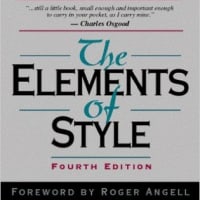
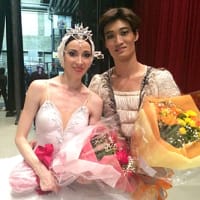

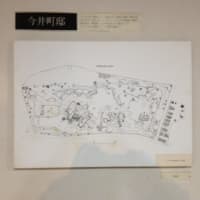


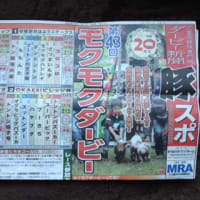


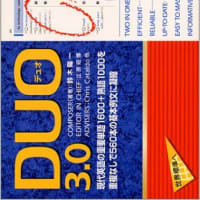
※コメント投稿者のブログIDはブログ作成者のみに通知されます